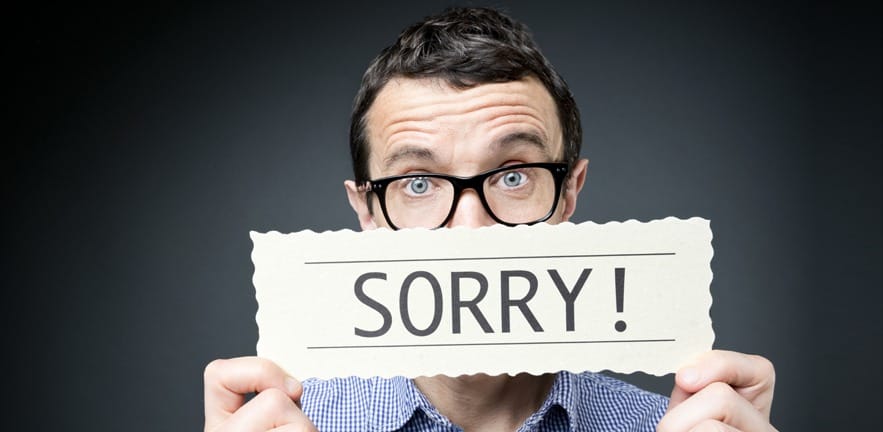‘Sorry’ shouldn’t be so hard a word, says research co-authored by David De Cremer.

Popular song titles have long recognised how people have a tough time apologising – from “Sorry seems to be the hardest word” by Elton John to “Hard to say I’m sorry” by the horn-heavy band Chicago.
And while those songs lament losing love, reluctance to apologise also poses a problem in the workplace because it can lead to long-term conflict and disruption. It’s a sad, sad situation, especially if workplace tiffs get more and more absurd through a transgressor’s failure to apologise.
But just why is the S-word so hard to utter?
Recent research co-authored by David De Cremer, KPMG Professor of Management Studies at Cambridge Judge Business School, concludes that a key reason people find it so hard to apologise is that they overestimate the potential negative effects of apologising compared to what they actually experience in saying sorry.
People fear that apologising may undermine their status, fuel demands for compensation, or surrender power by providing the victim a choice whether to forgive or not – but such apprehension is usually greater than what people actually experience when they apologise.
Through such a “forecasting error” – imagining an event that is qualitatively different from the event actually experienced – transgressors also simultaneously underestimate the potentially positive effects of apologising such as a feeling of relief, the research found.
The study shows that perpetrators don’t feel nearly as stressed when actually apologising than when they think about apologising.
The study “Forecasting Errors in the Averseness of Apologizing” is published in the journal Social Justice Research. It measured how “stressful,” “hard,” “unpleasant” or “humiliating” it would be to imagine apologising and to actually apologise, and, similarly, how “relieving,” “easy” or “rewarding” an apology would be. The authors, besides De Cremer, are Joost M. Leunissen of Southampton University, Marius van Dijke of Rotterdam School of Management, and Christopher P. Reinders Folmer of Erasmus School of Law in Rotterdam.
Earlier research co-authored by De Cremer, published in Psychological Science, had found that people overestimate the positive effect of receiving an apology following a breach of trust, in that they don’t feel as satisfied and happy as they predicted they would feel.
“Taken together, these studies suggest that a mis-coordination seems to exist between the giver and receiver of an apology,” De Cremer said.
Victims want to receive apologies, though such apologies are often somewhat of a letdown when received, whereas transgressors don’t engage because they fear the act of apologising itself.
Lack of harmonisation is also found in other research by De Cremer and colleagues, published in the Journal of Experimental Social Psychology, which focused on repairing trust. They found that victims of a transgression particularly expect an apology when the perpetrator had the intention to breach trust, whereas perpetrators were only willing to apologise when they unintentionally breached the victim’s trust.
“This mis-coordination effect can thus thwart reconciliation, which is a very important process following a transgression, and has implications for management practices of restoring trust,” De Cremer said.

